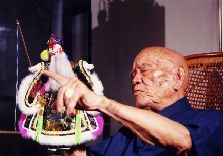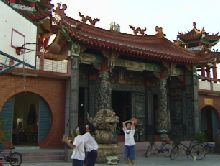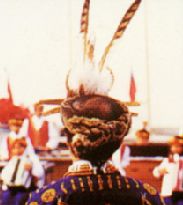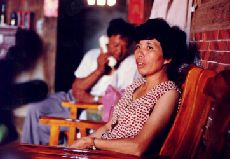Theater in the Palm of Your Hand-Glove Puppetry in Taiwan

Using the history of Taiwanese puppet theater as his starting point, the director cast his eye over the whole of Taiwan’s modern history, creating a documentary of epic proportions. He explored the different styles of the main schools of glove puppet theater(such as the Huang family of the Wu Chou Puppet Theater).
Shooting for“Theater in the Palm of Your Hand”began in March 1998. The production team traveled all over Taiwan to document puppetry events (including Wang-ah festivals in many areas, theater competitions and public performances).
Work on“Theater in the Palm of Your Hand – Glove Puppetry in Taiwan”began in 1997. Based on an initial design put forward by the Government Information Office (GIO), Hanson was commissioned to make the documentary with Yu Kan-ping as director.




